Movie Review – Supernova (2000)
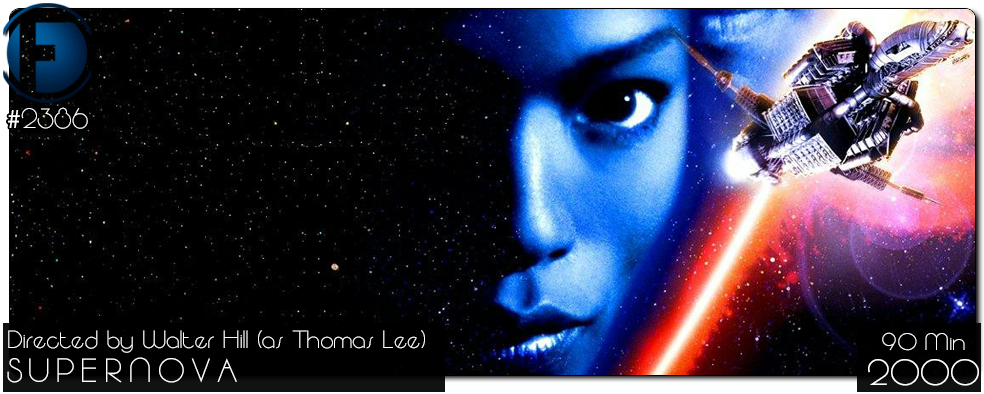
Principal Cast : James Spader, Angela Bassett, Robert Forster, Lou Diamond Phillips, Peter Facinelli, Robin Tunney, Wilson Cruz, Eddy Rice Jr, Vanessa Marshall.
Synopsis: A deep space rescue and recovery spaceship with a crew of 6 receives a distress call from a mining operation 3432 light years away. A rescue operation via dimension jump is made. Bad idea.
********
As a functional coagulation of James Cameron’s sloppy seconds, 2000’s unfortunate “space horror” adventure famously went through three different directors before it afterbirthed into cinemas to critical and commercial failure. Time hasn’t been kind to the status of Supernova, with even the hardest of sci-fi fans recalibrating their assessments of it to match popular opinion, even if that opinion is wrong. Originally directed by Walter Hill, who had his name removed from the film following disputes with producing studio MGM, and undergoing reshoots with Jack Sholder, before eventually being handed over to American Zoetrope and no less an iconic filmmaker than Francis Ford Coppola for a re-edit (or, if you like, a re-envisioning), Supernova would explode into cinemas some two years after principal photography originally wrapped, and sank like a stone in the public perception. One of the few films I’ve seen whereby the director is an “Alan Smithee” credit – here, the studio opted for a “Thomas Lee” pseudonym in Walter Hill’s absence – Supernova is a splendidly idiotic mix of Aliens, The Abyss, Event Horizon and a stock-standard zombie thriller, neither matching any of those classics or attempting to rewrite the rulebook. It’s a strictly by-the-numbers sci-fi thriller, populated by some goddam sexy people in their prime, all captured in an evocative James Cameron Blue™ colour palette and the loudest sound design for space travel you’ll ever hear.
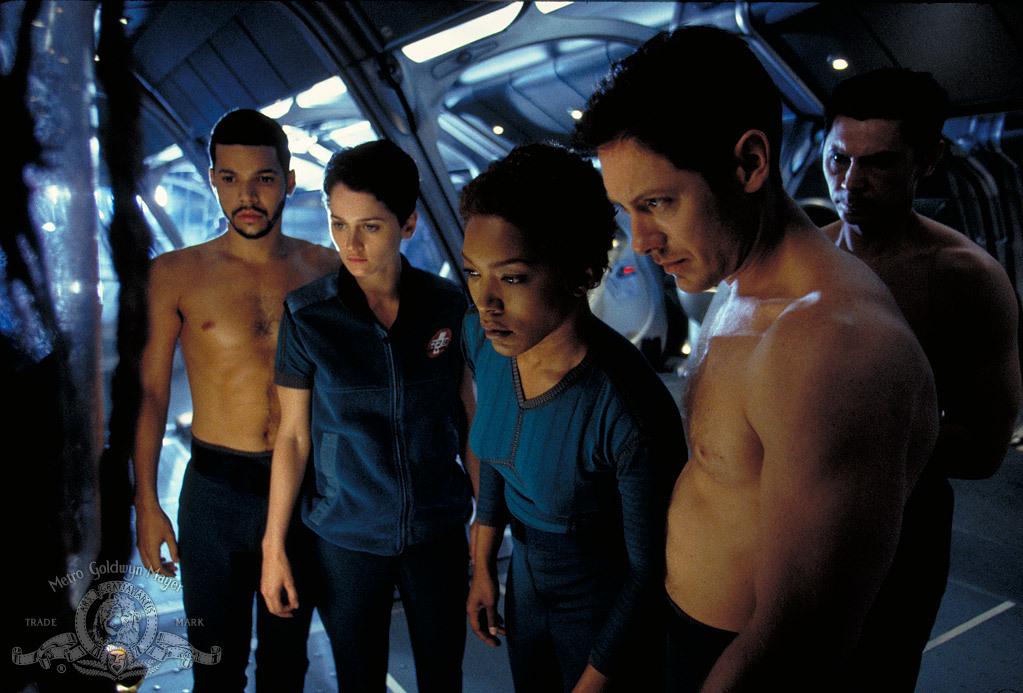
The film follows the crew of the medical rescue ship Nightingale 229, which is led by Captain A.J. Marley (Robert Forster) and co-pilot Nick Vanzant (James Spader). The crew includes medical officer Kaela Evers (Angela Bassett), computer technician Benjamin Sotomejor (Wilson Cruz), paramedic Yerzy Penalosa (Lou Diamond Phillips), and his romantic partner, Danika Lund (Robin Tunney). While responding to a distress signal from a distant mining colony, the Nightingale crew encounters Karl Larson (Peter Facinelli), a mysterious survivor who brings aboard a dangerous alien artefact. This object is discovered to have the ability to manipulate matter and is connected to an impending supernova that could annihilate everything in the vicinity. As the crew tries to uncover Larson’s true intentions, they become embroiled in a deadly race against time to prevent a catastrophe, all while dealing with escalating personal conflicts and hidden agendas.
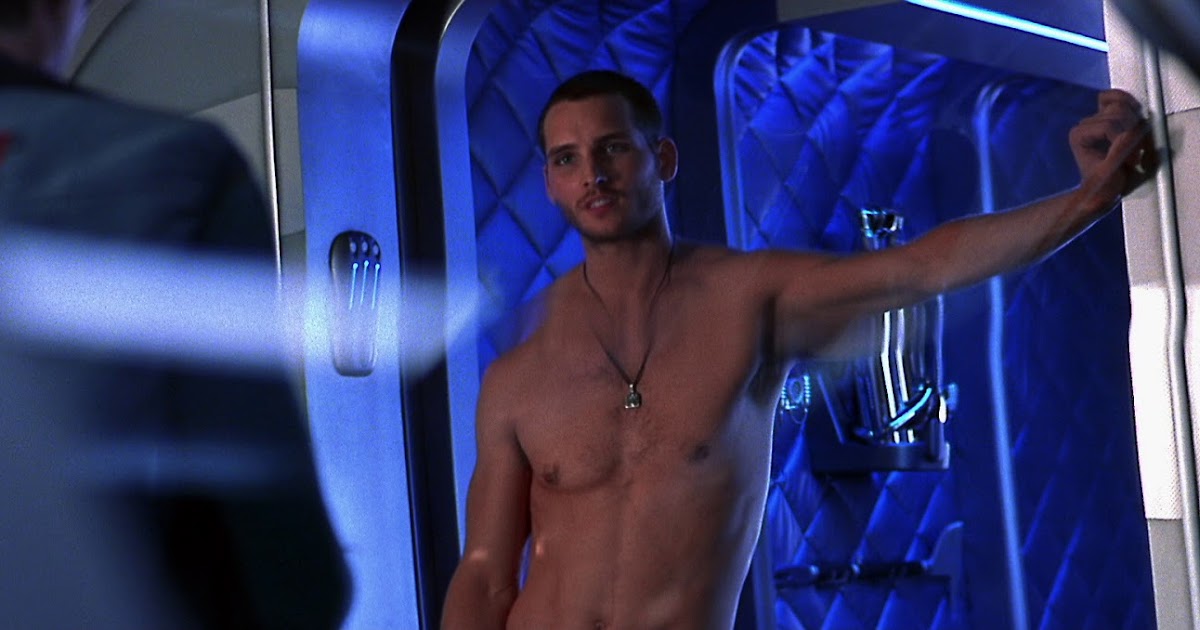
As unbelievable as it might seem, Supernova isn’t actually that bad a film. Sure, it’s not amazing, but I’d put it on par with Event Horizon as a classic example of sci-fi horror missing its opportunities. The film’s problematic production and release isn’t quite the entertainment killer I seem to recall from my time watching it in the cinema, and to my knowledge it’s one of only a few films I’ve never bothered to revisit since that time. Now, having done so, I find it quite the conflicting experience because in all honesty I really had a great time with this movie, and that feels strange to say given the legacy of criticism it’s built up over the years. The theatrical release can feel a bit mise-en-scene in a way, being dropped into the middle of a story with little time for context or background information on any but a few of the characters here, and the story feels a little too jumbled from generic subgenre tropes to really capture the imagination of those seeking unique viewing pleasures, but as a creepy little throwback film boasting a stellar cast and some wonderful (if underutilised) production design, I had a great time with it.
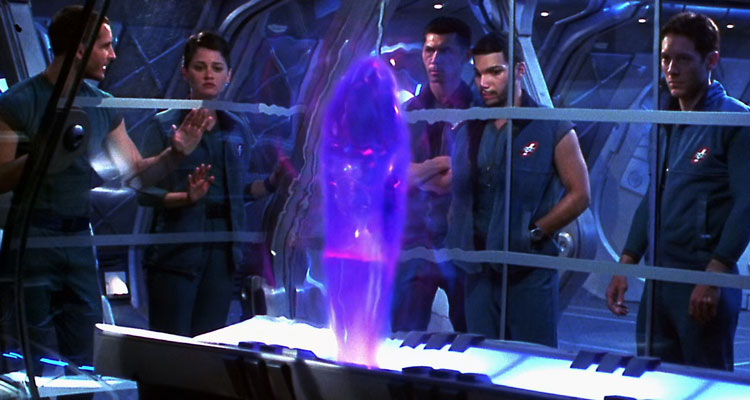
It should be reiterated again, again and yet again, that Supernova has one of the hottest ensemble casts ever assembled on the screen – physically, there’s almost nobody in this movie that’s not a perfect specimen of humanity, with the possible exception of a craggy and short-lived Robert Forster, who essentially Steven-Segal-in-Executive-Decision‘s his way out of frame before the main titles have finished dropping. You’ve got Hot James Spader, Hot Angela Basset, Hot Lou Diamond Phillips (circa 1998-2001 the dude was ripped as hell), Hot Robin Tunney, and a malignantly hot Peter Facinelli, while a young Wilson Cruz is always startlingly steamy. This film has freakin’ sex appeal up the whazoo, and makes great use of this through a number of nude sequences involved with the “dimension jump” plot device. Spader glowers at the screen and spits charisma all days long as the ship’s replacement captain Vanzant, while Bassett treads quietly as the chief medical officer. Facinelli has the lion’s share of screen-time as the central antagonist, and plays it well right up until the end, where the film makes some eye-rolling creative decisions that don’t feel as subtle as they could have been.
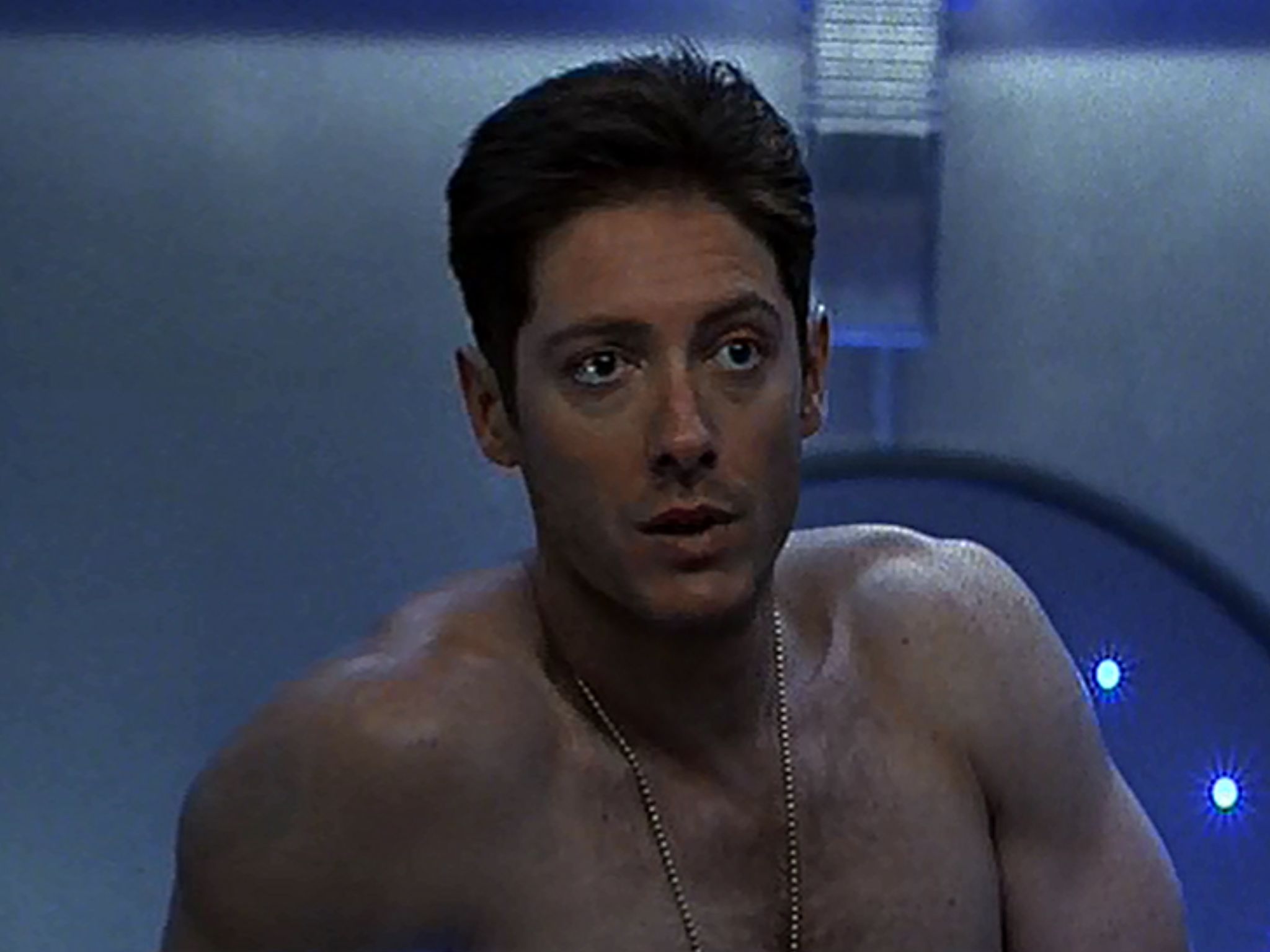
As noted earlier, many of the film’s problems can be rightly laid at the feet of post-production tinkering (meddling?) and this is no more evident than in the very thin backstory work done for both Spader and Bassett’s characters. There’s a hint of troubled past for both, and some tedious exposition-drops that only ever feel like we’re missing some crucial information around relevance. It’s all well and good to suggest a character has some hidden flaw early on, but Supernova never closes that loop, never resolves the underlying tension. Oh, Spader’s character is a former drug addict? Cool, I’m sure that’ll have some relevance to the third act… oh no, nothing. This hodgepodge attempt to excise what was obviously fleshed out character beats isn’t disappointing so much as it is just frustrating, and a lot of the emotional compartmentalisation the film contains is equally so. One of the female characters is hoping to have a baby? Sure, blow them out an airlock and leave that tangent unresolved. Another character has unrelated daddy issues? Never mention it again. In service to the film’s action and tension, much of the tone and soft-tissue work in the screenplay has been jettisoned, and the film ends up the poorer for it. You have a superb ensemble cast and you decide not to hone in on their strengths as character actors? Idiotic decision.
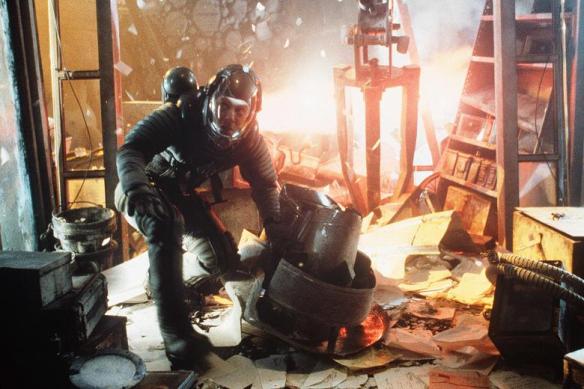
What I really enjoyed about Supernova (in spite of everything else working against it) was the film’s visual aesthetic and malevolent tone. The space vessel our crew schlep around in is a bizarre mix of futuristic and utilitarian, a collision of design comfort and practicality that you don’t really appreciate until after the fact. There’s a lot of silver here, from the ship’s walls and bulkheads to control panels, while the various cargo bays and darkened corners to hide in all feel conspicuously cramped. The film’s visual effects range from decent to great to really, really sub-par, perhaps only mitigated by watching this on a smaller screen to hide the seams and cracks. Cinematographer Lloyd Ahern II drapes the film in typical sci-fi blue tones, which, alongside the shifting pink and green hues of the mysterious object brought aboard the ship, apes Cameron’s Aliens aesthetic to such a degree he ought to sue for content theft. There are a lot of close-up shots here that can give the viewer a slightly discombobulated feeling, not being able to place an actor within a scene or setting, but in my opinion this works for the film’s uncomfortable premise and keeps the audience off-balance.
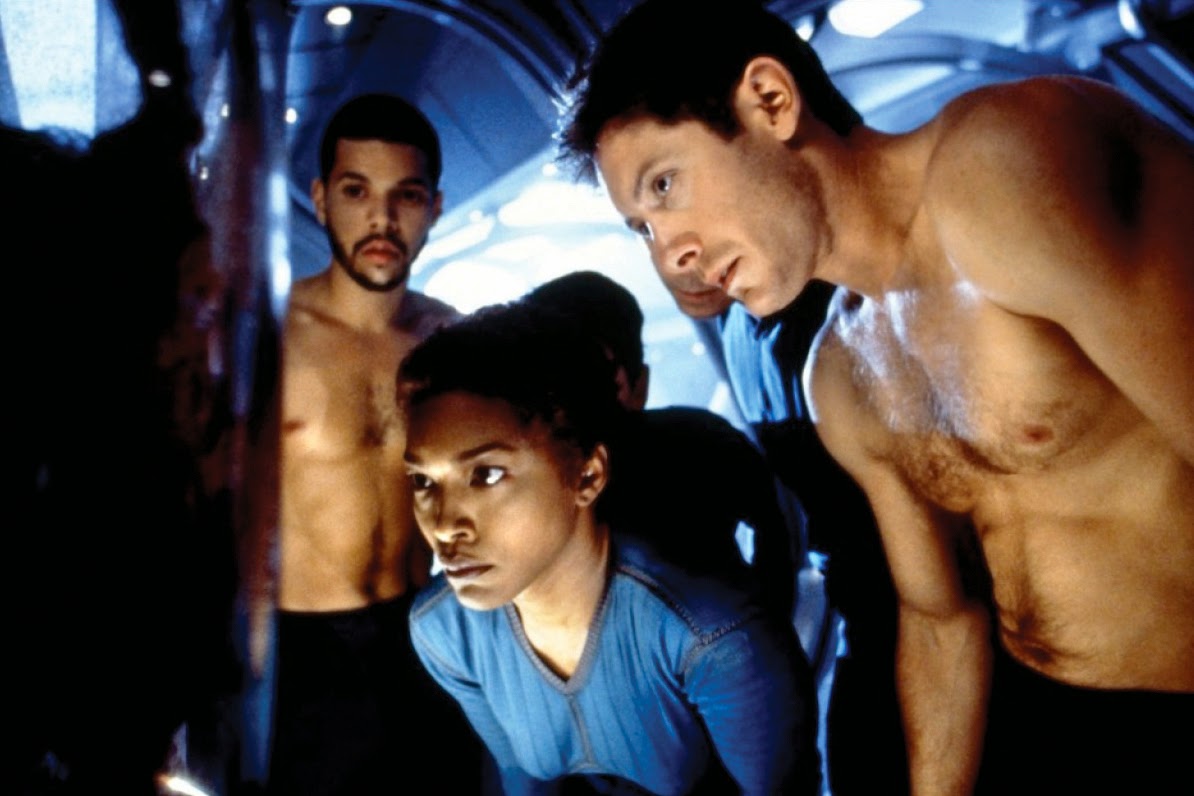
I alluded to Paul Anderson’s Event Horizon earlier here, and my point stands: Supernova is a horror film, set in space, that almost works, similarly to the Sam Niel “classic”. There are a bunch of disparate elements to Supernova that positively sing when the film clicks into gear, and there’s definitely a very strong opening act to the movie that makes up for some ill-judged creative decisions later in the piece. Sure, it runs off the rails at times, and is really only held together thanks to the Spader/Bassett/Facinelli combo, all of whom appear to be having a terrific time chewing scenery and taking the paycheck, but the rest is pure pulp escapism that’s as mindless and cliched as anything going around today, saturated with tropey jumpscares and thunderous sound design. Does it always work? Hell no. Is it as bad a film as you’d been led to believe – not entirely; although it isn’t without its problems there’s still a huge amount of hokum-fun here and that’s enough for me.
